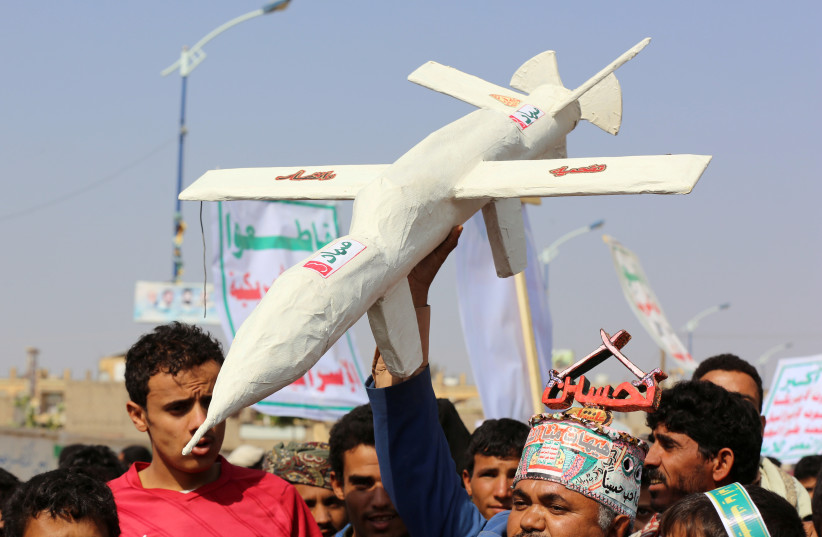The new Iran-Saudi Arabia deal, which was announced in China after more than a year of meetings in Iraq, will have no impact on the Houthi war in Yemen, according to the Iranian-backed Houthi group in Yemen.
Saudi Arabia intervened in Yemen in 2015 to prevent the Houthis from taking over a swath of the country. Since then, Iran has supplied the Houthis with missile and drone technology used to target Saudi Arabia.
The war has caused Yemen to suffer and also resulted in a proxy conflict. Saudi Arabia and the UAE, which was also involved in Yemen, have not always agreed on the aims of the war.
It also became a testing ground for Iran’s drones, which helped improve the kamikaze drones that Iran then exported to Russia.
Iran also uses vessels, usually disguised as civilian or commercial dhows, to move weapons to Yemen. The US and UK navies have interdicted numerous shipments from Iran to Yemen. These shipments often contain munitions and sometimes sophisticated equipment for missiles and drones.

Experts have traced numerous parts of drones and missiles used by the Houthis back to Iran and also revealed how Iran acquires some pieces for its drones, such as gyroscopes or engines, from supplies in Europe or even China.
Will Iran now reduce support for the Houthis in the wake of the Saudi deal?
This means the Iranian war in Yemen is important for Iran. The war in Yemen gave Iran a chance to also try to project its power into the Red Sea and Gulf of Oman. It attacked commercial ships over the last several years, sometimes hundreds of kilometers from Iran. The Islamic Revolutionary Guard Corps is also believed to have sent ships into the area to monitor what is happening. A key question is whether Iran will reduce this kind of activity.
Gulf media posited that the deal will not impact the war in Yemen, while the Houthis claim they don’t take orders from Iran, a representative of the group told Al Mayadeen, a Beirut-based satellite television channel.
“Saudi Arabia must know that our relationship with Iran is not one of subordination,” Abdulwahab al-Mahbashi, a member of the Houthis’ political wing, was quoted as saying by Al Arabiya, a Dubai-based Arabic news channel. “It is an Islamic brotherly relationship. Resolving the Yemen issue [can only be achieved through negotiations] between Sanaa and Riyadh and not Tehran and Riyadh.”
This leaves many questions: Will Iranian weapons shipments to Yemen dry up? Will Iran pressure the Houthis? Or will Iran pretend there is plausible deniability in its continued arming of the Houthis? Will Saudi Arabia make an issue of this and ask China to pressure Iran? Was this part of the deal?
The Houthis also threaten Israel. According to reports in recent years, Iran has provided them with technology for drones that could attack Israel.
As Iran shifts its drone exports to Russia, including the types of Shahed-136 drones it had once sent to Yemen, it’s unclear if the drones are still being exported to the Houthis. Some of the drones are made locally so that the Houthis can make some of these systems themselves.
The Houthis’ official rhetoric includes slogans about “Death to Israel,” “Death to the US” and “Curse the Jews.”
Clearly, the Houthis have wanted to expand their regional role and link up with Hezbollah. This means Iran’s two major partners, Hezbollah and the Houthis, will be in the spotlight after the deal.
Saudi Arabia cares about Yemen and Lebanon, and it’s unclear whether the deal will impact this arc of Iranian influence and power that stretches several thousand miles from Lebanon via Syria and Iraq to the Persian Gulf and Gulf of Oman and Yemen.
